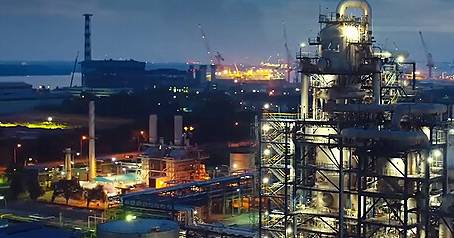Jul . 31, 2024 12:33 Back to list
Exploring the Versatility and Applications of 75mm PVC Pipes in Modern Plumbing Solutions
Exploring the Versatility of 75mm PVC Pipe
Plastic materials have become an essential component in various industries, and among them, polyvinyl chloride (PVC) stands out due to its impressive properties and versatility. The 75mm PVC pipe, in particular, has gained substantial popularity in fields ranging from construction to plumbing and irrigation. This article delves into the characteristics, applications, and advantages of 75mm PVC pipes.
Understanding PVC Pipe
PVC is a synthetic plastic polymer that has become a standard material for piping systems. It is known for its durability, lightweight characteristics, and resistance to corrosion and chemicals, making it superior to traditional materials like metal or wood. The diameter of a pipe is crucial for determining its flow capacity and suitability for specific applications. The 75mm (or 3-inch) diameter pipe is considered a medium-sized option, suitable for various fluid transportation needs.
Applications of 75mm PVC Pipe
1. Plumbing Systems In residential and commercial plumbing, 75mm PVC pipes are widely used for transporting water, sewage, and waste. Their resistance to corrosion makes them ideal for systems that are exposed to various chemicals and environmental conditions.
2. Irrigation Agriculture relies heavily on efficient water distribution, and PVC pipes play a crucial role in irrigation systems. The 75mm pipe is ideal for transporting large volumes of water from reservoirs or pumps to agricultural fields, ensuring crops receive the necessary hydration without leaks or contamination.
3. Drainage Solutions The drainage of surface water and wastewater is critical for maintaining hygiene and preventing flooding. PVC pipes are often used in drainage systems, where the 75mm diameter allows for effective removal of excess water in urban settings and construction sites.
75mm pvc pipe

4. Electrical Conduit Beyond fluid transport, 75mm PVC pipes are also employed as conduits for electrical wiring. Their electrical insulation properties help protect wires from physical damage and environmental factors, making them suitable for both residential and industrial applications.
Advantages of 75mm PVC Pipe
1. Lightweight and Easy to Install One of the most significant advantages of PVC pipes is their lightweight nature, which simplifies transportation and installation. Labor costs can be reduced as less effort is required to handle and install these pipes compared to heavier alternatives.
2. Cost-Effective PVC pipes are generally less expensive than metal options, making them a budget-friendly choice for contractors and homeowners alike. Their longevity and low maintenance costs further contribute to their overall value.
3. Corrosion Resistance Unlike metal pipes, PVC pipes do not corrode over time. This property ensures longevity and reliability, especially in environments prone to chemical exposure or moisture.
4. Versatile Manufacturing Options PVC can be molded into various shapes and sizes, allowing for custom solutions tailored to specific needs. For example, fittings and bends can easily be created for complex piping systems.
Conclusion
The 75mm PVC pipe embodies the combination of functionality, versatility, and economic efficiency that has led to its widespread adoption across multiple industries. From plumbing and irrigation to electrical applications and drainage systems, its benefits make it a preferred choice for construction professionals and DIY enthusiasts alike. As industries continue to seek out sustainable and reliable materials, the relevance of PVC pipes, particularly the 75mm variety, is poised to grow further, proving their integral role in modern infrastructure. Whether you are planning a home renovation or managing a large-scale construction project, the durability and efficiency of 75mm PVC pipe are sure to meet your needs.
-
HDPE Pipe Fittings: Durable, Leak-Proof Solutions
NewsAug.16,2025
-
Premium CPVC Sheet: High-Temp & Chemical Resistant Solutions
NewsAug.15,2025
-
Durable PPR Pipe for Hot & Cold Water Systems - Easy Install
NewsAug.14,2025
-
Durable HDPE Sheet | Versatile & Impact-Resistant Plastic
NewsAug.13,2025
-
Premium PVC Soft Sheets: Clear, Flexible & Durable
NewsAug.12,2025
-
Premium PVC Round Rods: Durable, Chemical Resistant, Easy to Machine
NewsAug.11,2025

